Even if you can only watch it once, “The Coffee Table” is a devastating masterpiece that will leave a lasting impression.
The same dark, unforgiving force that inspired writers Borobia and Casas to create The Coffee Table (La Mesita Del Comedor), a story of an accident and its aftermath, will leave you picking glass shards from your psyche days after watching.
Now, I haven’t been writing with Morbidly Beautiful for long. Yet, I often wondered, “When will I come across a film that will make me feel confident issuing five butterflies (the highest rating we can give a film)?”
It turns out that it’s one of those things you just know in your gut – as in the digestive tract, not intuition.
This film made me feel physically anxious and ill for almost its entire 88-minute run time. Like, you know how you can’t see a logging truck without thinking about FINAL DESTINATION 2? Yeah, be prepared to actively avoid select coffee tables (and potentially parenthood) henceforth.
Now, as you step into this review, I have two demands (yes, demands) for viewing The Coffee Table: 1. Go in cold-ish (if you’ve read to this point, you already know too much) and 2. Ensure you have ample time to decompress emotionally afterward.
I hate even saying that because I don’t want to create expectations that could accidentally mar your experience, especially given that you will likely only watch this film once.
For those who want to preserve the purity of their viewing experience, please close your browser window now, tune your excitement level down to appropriate indie film levels, and come back to read my reflections later… because I absolutely must have some more detailed dialogue with you about what I just watched.
I have so many questions and possible ways to analyze and interpret the imagery and messaging, and I desperately want to hear your perspectives.
And now, vamos a empezar.
The coffee table: A karmic domino or cursed homegood?
I’m going to argue it’s neither.
To me, this film isn’t actually about the coffee table. The coffee table is both decoy and tipping point, not the catalyst. The real focus? How parenthood and children have the power to decimate relationships, especially when psychological safety and validating one another’s experiences aren’t prioritized.
In Jesús (David Pareja) and María’s (Estefanía de los Santos) relationship, the coffee table is simply the vehicle to land this point in a tragic and terrifying way.
And if anything is cursed or has the power to cause irreparable damage and chaos? I’d like to suggest it is the baby.
Yes, yeah-many-months-old-can-barely-lift-his-head-up-unaided Cayetano. As humans, generally speaking, we continue to place overwhelming and unfair pressure on one another to procreate. I get that, for some of us, it is a (biological, cultural, or personal) calling. But for some of us, it is not. To those who view parenthood similar to Jesús, desperation over having a baby makes as much sense as… fighting intensely to buy a coffee table.
Do you think I’m making a stretch of an assessment? What do you make of this exchange between the furniture salesman and María?
Does anyone else feel like this is a familiar argument around having kids? Just have them, and you’ll be happy, they say. I feel some of you chuckling silently or raising an eyebrow. Then why does Jesús’ dogged assertiveness over selecting the coffee table feel like a desperate attempt to claim a scrap of agency in his life and relationship?
In my personal experience and based on what I hear from my peers, parenthood fucks with even the strongest partnerships.
It fundamentally changes you as an individual and a couple.
For some, it brings you together over a common need and purpose. However, I’d argue for the more significant majority (again, just commenting from my lens), it breeds discord – at least for the first three years, when the child requires the most active support to survive from the adults in their life.
That discord can bloom from so many places, like lack of consistent and therapeutic sleep, changed routines, and changing dynamics in independence and intimacy. That’s saying nothing of the intense demands of child-rearing and enormous financial strain. I could go on. Heck, just see the girl with the list.
Jesús and María feel uncomfortably familiar to me.
Resist the urge to write María off as a bully and villain, even when she utters her malicious and grating laugh or takes a cruel, public jab at Jesús. Resist the urge to side with Jesús, as his chronic avoidance may be exacerbating her frustration — and is he entirely innocent in the situation with the young girl upstairs (bro, why were you even on her Instagram at all)?
Ultimately, we don’t know where Jesús and María lost their way, however we do see they are rooted in love (my heart ached at their tender moment in the bedroom together when he preemptively asks for forgiveness).
Instead, let’s consider placing the “blame” on parenthood. Take a moment and focus on their thoughts about their readiness for and reactions to parenthood.
For Jesús, it felt like…
And then the dagger from María, delivered with a harsh and critical tone: “Are you rejecting your son?”
Oof, this sequence was in the opening scene, and it absolutely crushed me as someone who also wasn’t sure they wanted kids.
Even now, after having my daughter, I can confidently say that María’s dig was unfair. These things are not mutually exclusive and can exist together.
I love my daughter deeply and welcome the lessons and laughs she brings me AND my life would have likely been easier, more financially free, and fulfilling in a totally different way if I’d never become a parent. I never felt my “biological clock ticking” or that warm draw to motherhood as María did.
Why can’t we meet each other where we are regarding parenting?
Why can’t it be ok for María to embrace her role as a mother (*cough*, friendly reminder that María is the Spanish name for Mary) and for Jesús to potentially be drawn to a different path (*cough*, Jesus is willing to sacrifice himself for our sins)? Loving a child and loving being a parent are two very different things, and it cannot be assumed that they happen simultaneously or effortlessly. María and Jesús never make this assessment of their situation overtly; however, they know something is off.
“We’re acting really strange now that we’re parents.”
Yeah, you are. And it’s relatable. Kudos to this team for honoring this.
The pressure to have children is very real. The judgment when you do not is very real. I can only imagine how it feels to have that pressure and judgment coming from one’s partner.
The coffee table may have delivered the most shocking and gruesome kill. However, Jesús and María’s relationship is the tortured (more painful) death by a thousand cuts — cuts that come in the form of Jesus’ passive avoidance, María’s criticisms and abrasive and loathsome laugh, their constant quibbling, and their inability to break their cycle and reconnect.
So, is this a cautionary tale? What’s the message here?
Don’t push your partner to start a family before they’re ready, be a passive passenger in significant life decisions, or tear your partner down incessantly and publicly. Or else. (A big ‘or else.’) Whatever the intention Borobia and Casas had in mind, I’m here for it.
Beyond the premise, I have to acknowledge the other savvy and well-executed elements of this film, like the dark comedy.
“Is something dripping in the bedroom?”
That’s all I’m giving you. There are so many other lines and moments I could flag. Just be prepared.
You will find yourself smile-cringing and laugh-groaning, especially once Jesús’ brother and his girlfriend arrive, which only adds to the exorbitant levels of discomfort elicited by this film.
The acting is one of the film’s greatest strengths; Pareja and de los Santos are forces, and I offer huge kudos to the team for excellent casting.
I’d even like to offer a nod to Gela Flores as Ruth, who effortlessly sold me on her awkward and unhealthy (and illegal) obsession with Jesús.
Sprinkle in more strengths, like the screenplay: undeniably original. The direction? Immaculately tight and focused while giving space and beats for grief and compassion where needed. The set design and lighting were exceptional, too. Little details were noted, like the Boris Karloff as Frankenstein print in Cayetano’s room.
Bigger choices were appreciated, like the effort to create a sense of claustrophobia as you wait for the reveal to hit like a ton of bricks.
Heck, by the end, the crib and the armchair become more dangerous furniture pieces than the coffee table. If someone took a step in either direction, I held my breath and was unable to anticipate the choices that were ultimately made. I was so fixated on and anxious about the crescendo and finale that I probably missed so many other rich details.
I would say I should watch it again, but I won’t. Rather, I can’t.
Some films, gorgeous and well-composed though they may be, are simply too traumatic to revisit. The Coffee Table unequivocally falls into that category, at least for me. However, that doesn’t mean you should avoid it; it’s extraordinary.


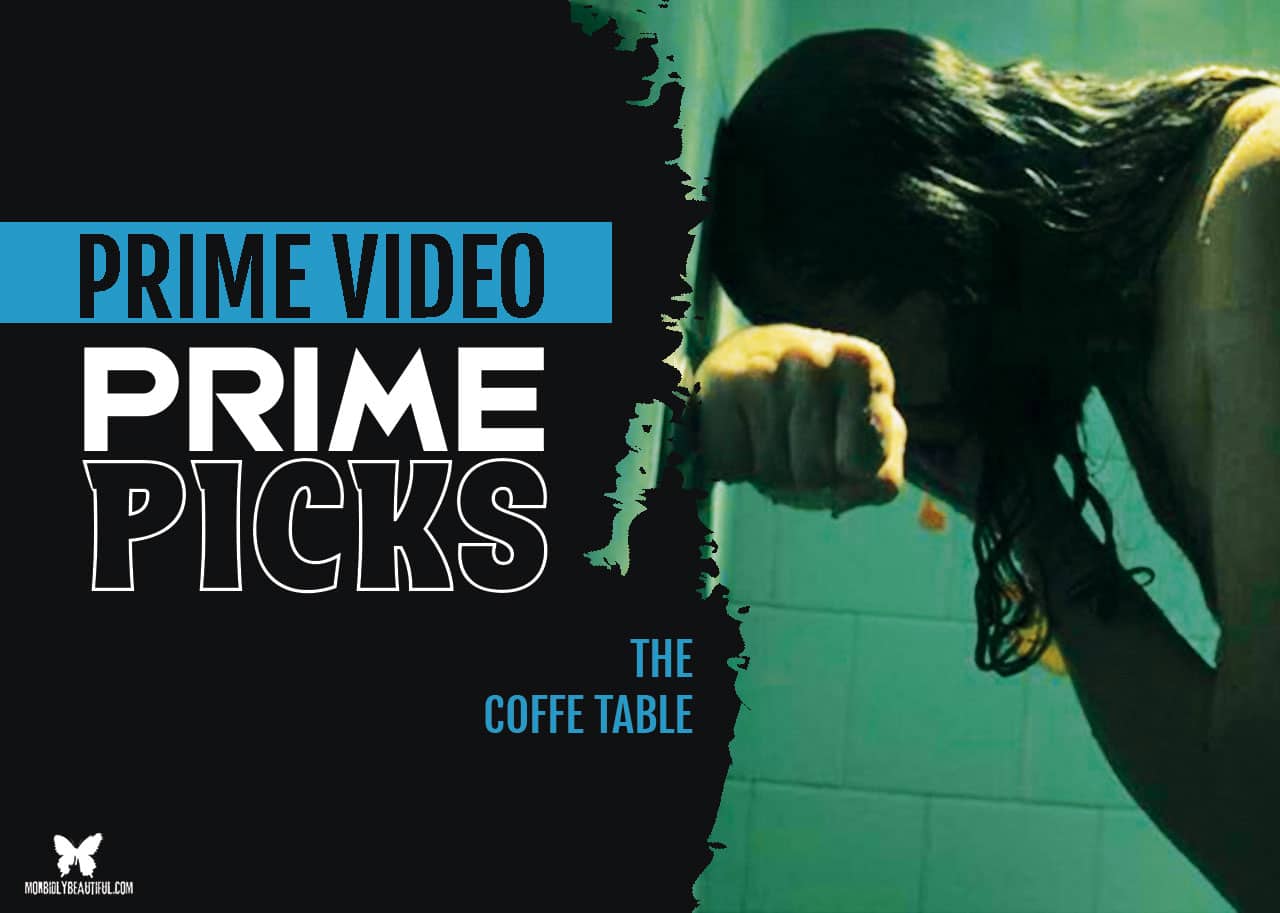
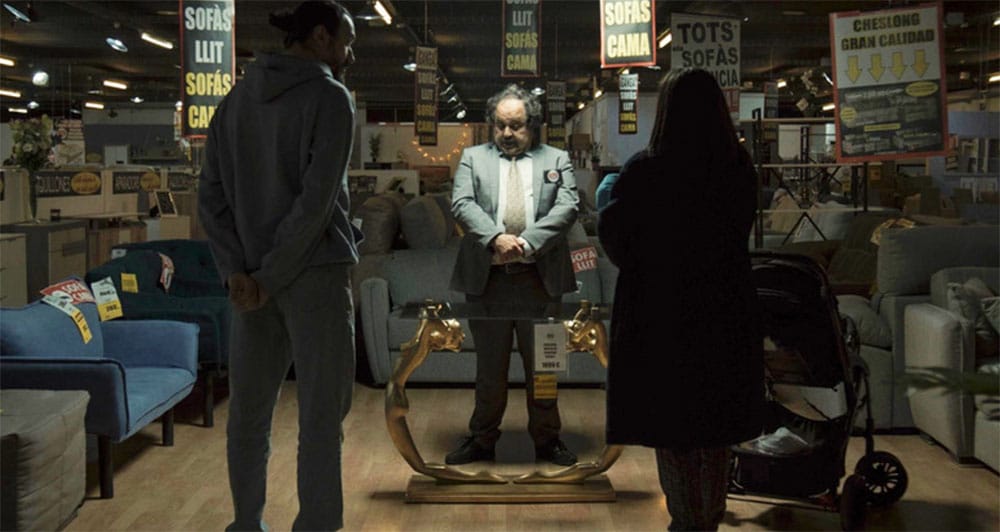
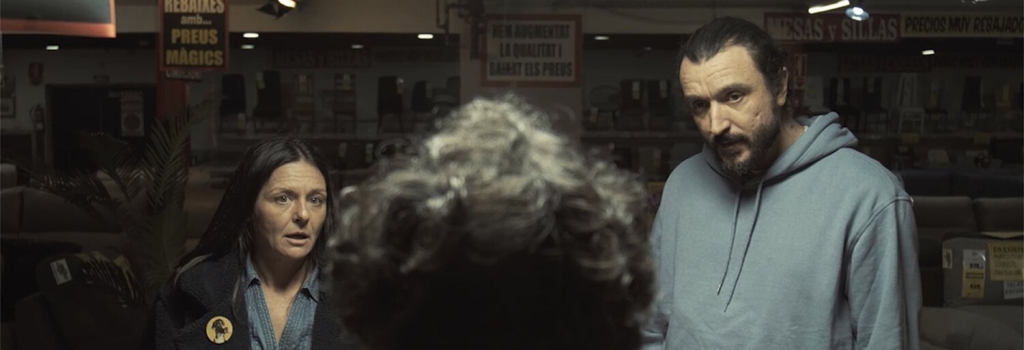
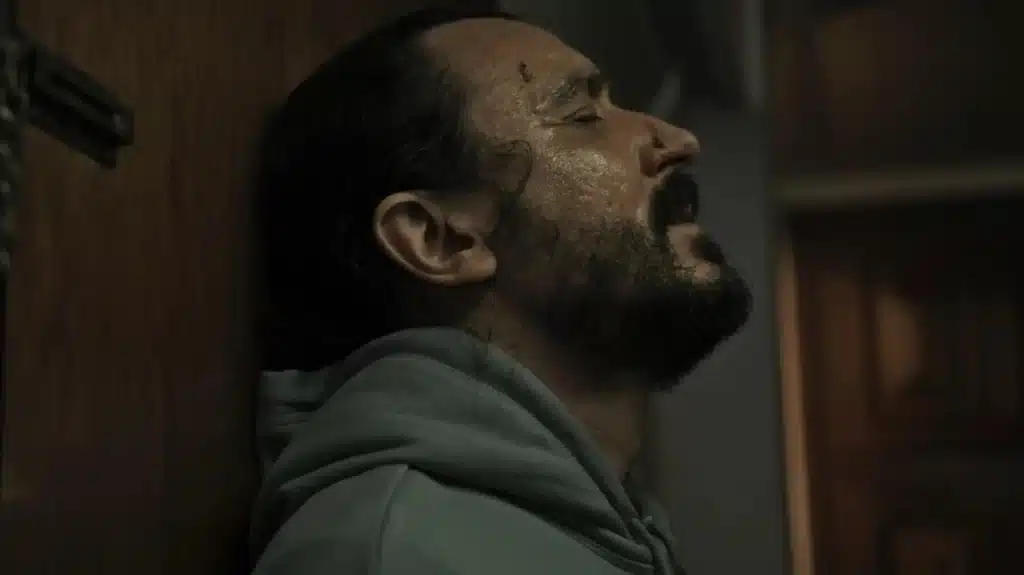
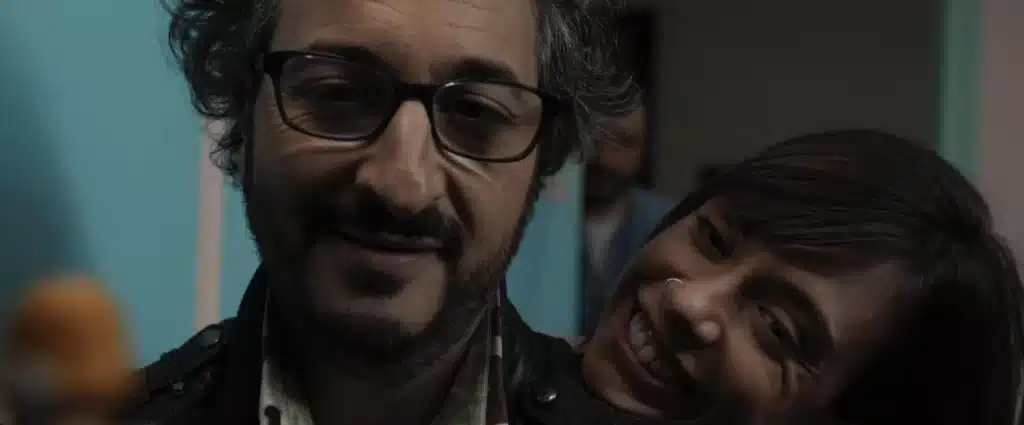
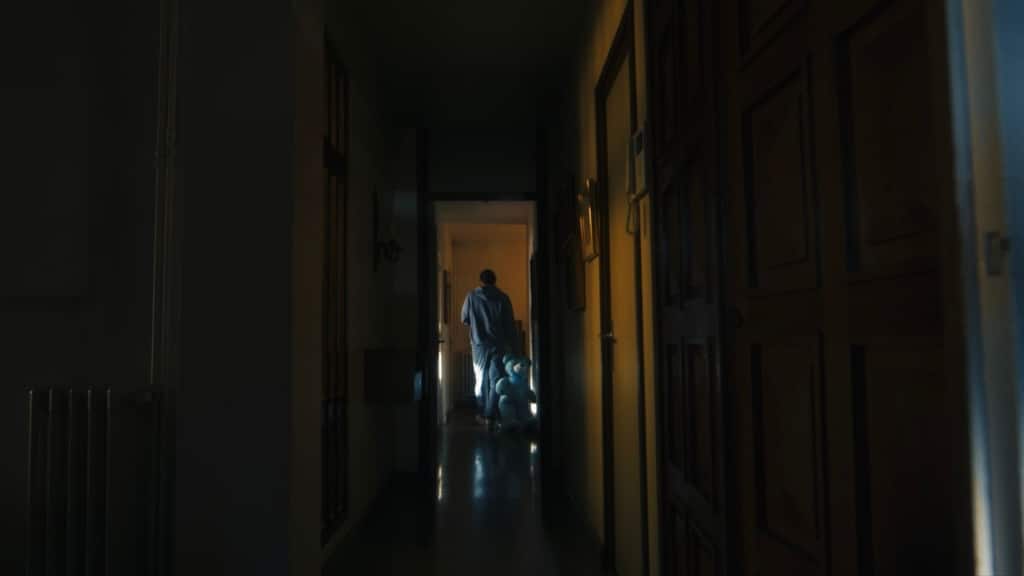
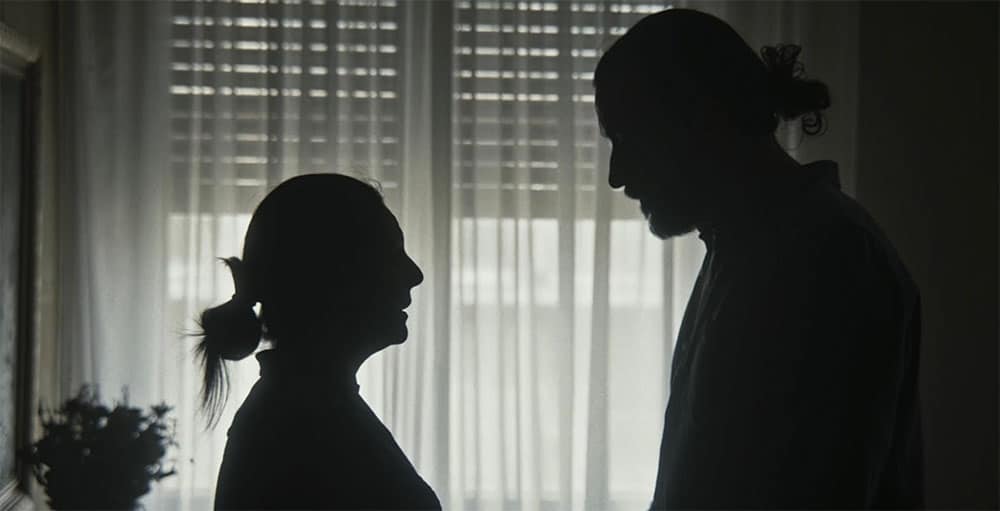









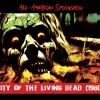


Follow Us!